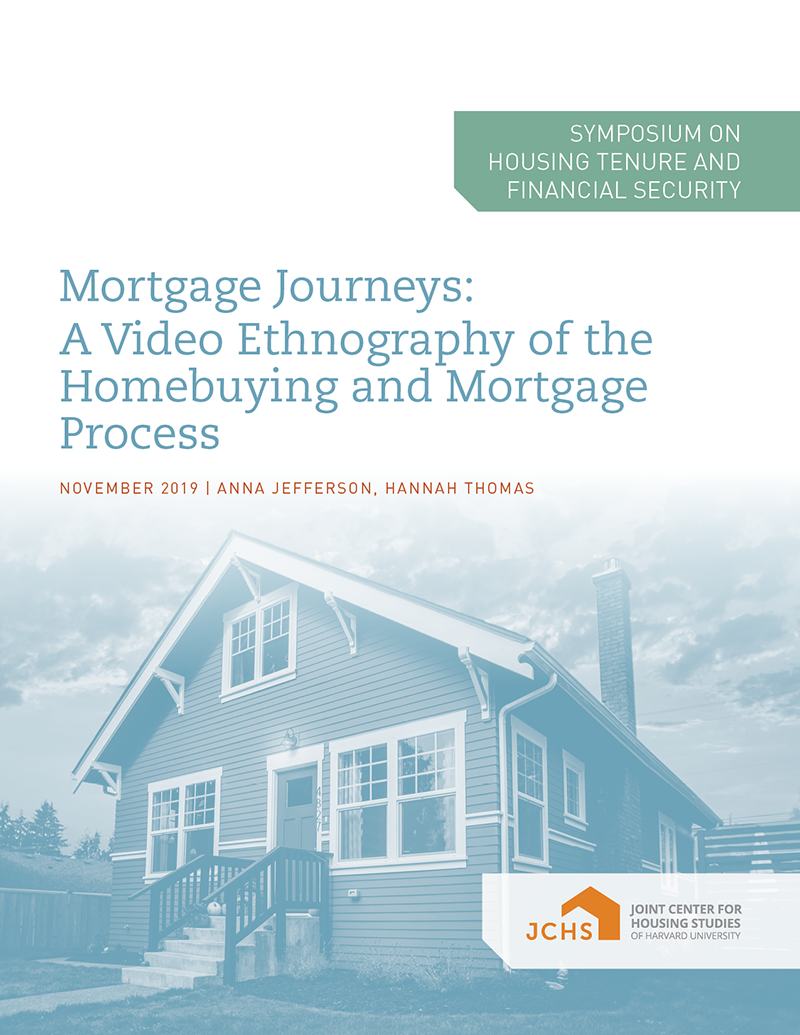Mortgage Journeys: A Video Ethnography of the Homebuying and Mortgage Process
Prior research suggests that comparison shopping for mortgages when purchasing a home helps secure a lower interest rate. In theory, the benefits of mortgage shopping should be particularly strong for lower- and moderate-income (LMI), first-time homebuyers, who may face particular underwriting challenges but who also may qualify for city and state level first-time homebuyer assistance programs. Yet we have only limited data about the mortgage shopping behaviors of LMI homebuyers and how those behaviors may influence mortgage outcomes. This paper presents new ethnographic data about how LMI first-time homebuyers access information and how that information shapes their mortgage shopping in three phases of the homebuying process. We find that study participants’ mortgage shopping behaviors evolved in three phases of a homebuying process and they took steps that differed from best practices, especially during the stressful purchase phase when mortgage shopping could have the biggest benefits. The study draws on longitudinal ethnographic video and interview data collected from 14 low-income first-time homebuyers in Boston, Massachusetts and Knoxville, Tennessee in 2015. The findings from the paper illuminate the need to improve the ease of gaining—and being able to act on—information about mortgages at all stages of the homebuying process.
This paper was originally presented at a national Symposium on Housing Tenure and Financial Security, hosted by the Harvard Joint Center for Housing Studies and Fannie Mae in March 2019. A decade after the start of the foreclosure crisis, the symposium examined the state of homeownership in America, focusing on the evolving relationship between tenure choice, financial security, and residential stability.

